23 July 2024
A phase 2 clinical trial of a new CAR T-cell therapy is getting underway at Wellington Hospital this month, on the back of promising phase 1 results that suggest improved safety compared with leading commercial CAR T-cell therapies, while remaining highly effective for B-cell non-Hodgkin lymphomas.

The ENABLE-2 team
Chimeric antigen receptor (CAR) T-cell therapy is a personalised cell therapy, in which a patient’s own immune cells are reprogrammed to recognise and eliminate cancer cells. Malaghan Institute Clinical Director Dr Robert Weinkove says commencing a phase 2 trial is a major step towards CAR T-cell therapy becoming a standard of care for certain blood cancers in New Zealand.
“We have final regulatory and ethical approvals, our first site is ready to go, and clinicians around New Zealand have been advised of the criteria and how to refer patients. We hope this new trial will confirm effectiveness and safety of our new NZ-developed CAR T-cell therapy and result in registration for routine use in New Zealand and overseas.”
Within the ENABLE-2 trial, 60 adults with certain types of relapsed or refractory large B-cell non-Hodgkin lymphoma will be treated over two years. After assessing the dose and safety of this new CAR T-cell therapy in a phase 1 trial where patients had exhausted all other treatments, patients will be treated earlier in their treatment pathway for ENABLE-2.
“We are hopeful that treating patients earlier – as a second- or third-line therapy – will result in even better CAR T-cell outcomes as their immune system function may have been less damaged by their prior cancer treatments. This may also limit the need for patients to go through repeated chemotherapies with diminishing returns,” says Dr Weinkove.
“The safety profile of our new CAR T-cell therapy also means we can deliver it as an outpatient treatment, lowering the burden on patients and their whānau, and reducing costs to the health system.”
The Malaghan Institute started New Zealand’s first trial of CAR T-cell therapy in late 2019, in collaboration with Wellington Zhaotai Therapies Limited, to assess the safety of a new ‘third generation’ CAR T-cell therapy and develop and support the regulatory and clinical environment for safe CAR T-cell delivery in New Zealand.
We hope this new trial will confirm effectiveness and safety of our new NZ-developed CAR T-cell therapy and result in registration for routine use in New Zealand and overseas.
In the ENABLE phase 1 trial, 30 New Zealanders were treated with the new CAR T-cell therapy, with results showing no limiting toxicities and more than half the patients in complete response three months after treatment.
ENABLE also established automated manufacture and delivery of CAR T-cells by BioOra Limited, a New Zealand start-up incubated at the Malaghan Institute and established with Bridgewest Ventures in 2021 to optimise and scale-up CAR T-cell manufacturing in New Zealand.
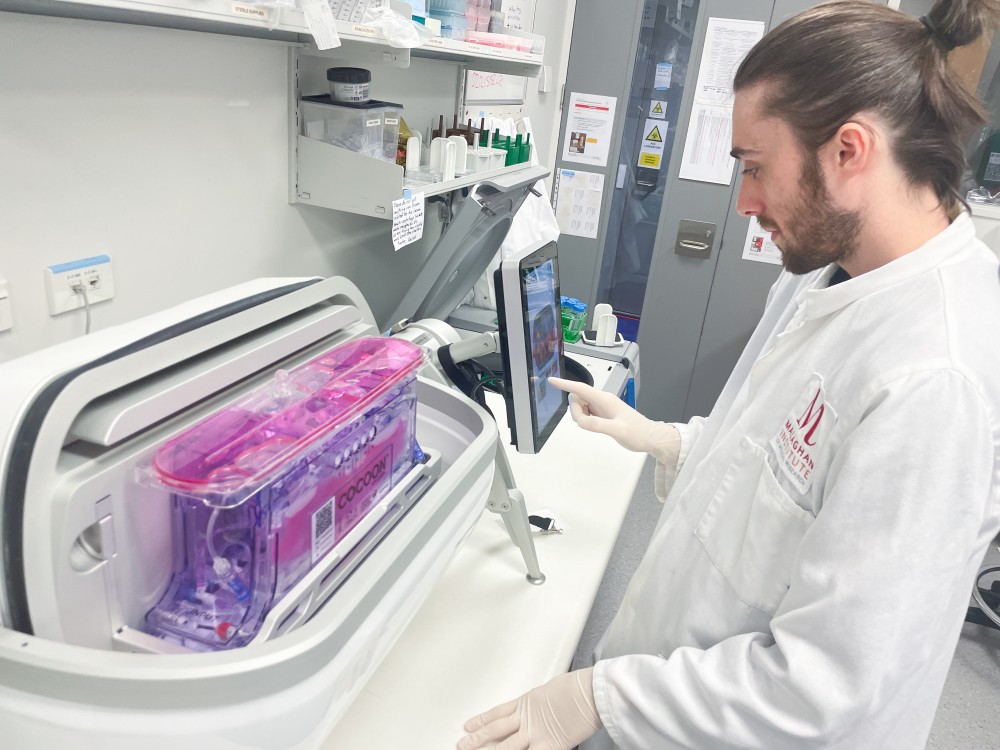
Automating CAR T-cell manufacturing with the Lonza Cocoon
“Automation offers efficiencies and scalability that will lower barriers to this ground-breaking treatment,” says BioOra Managing Director John Robson. “Our unique automated process for this personalised therapy will enable us to manufacture CAR T-cells more consistently at lower cost, and to treat more patients – for this trial and beyond.”
Dr Weinkove says the Malaghan Institute and BioOra are in active discussions with government and health sector colleagues about next steps, while putting in place the manufacturing, distribution and health service integration measures that could establish this therapy as a standard of care if the phase 2 trial is successful.
“A number of CAR T-cell therapies have been registered based on phase 2 trials. One of the key objectives of the phase 2 trial is to support registration of our CAR T-cell therapy in New Zealand and Australia. We would like to maximise the chances of timely uptake within the public health system to limit gaps in treatment availability for those who need it,” says Dr Weinkove.
“As a charity, the Malaghan Institute is hugely grateful to and reliant on our funders and donors for helping us bring this ground-breaking therapy to New Zealand, and demonstrate a new way to bring innovative, affordable new treatments into the New Zealand healthcare system.”
CLINICAL TRIAL RECRUITMENT
The Malaghan Institute is not a provider of health services and does not recruit patients to clinical trials directly. Patients should speak with their haematologist or oncologist about whether this, or other conventional or clinical trials might be an option for them. Referrals must be made by a relevant specialist to a trial investigator. A public summary of the ENABLE-2 trial is available on the ClinicalTrials.gov website.
Related articles
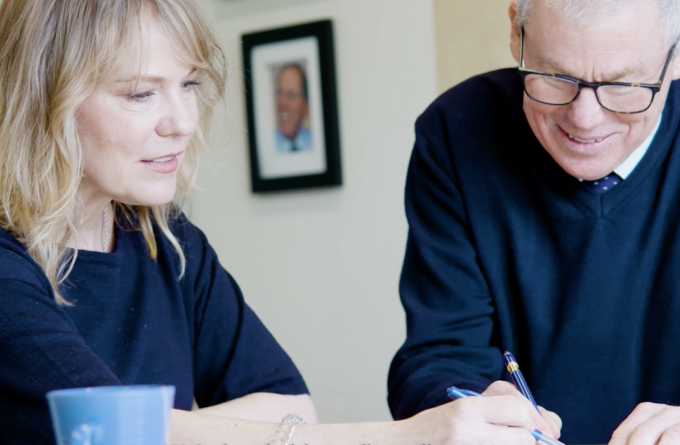
Kjesten Wiig: bringing life-changing treatments to life
27 February 2025
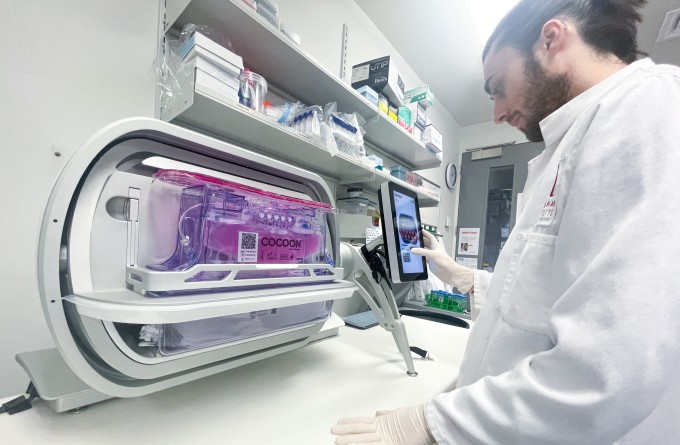
Malaghan CAR T-cell cancer therapy trial expands to Christchurch and Auckland
24 February 2025
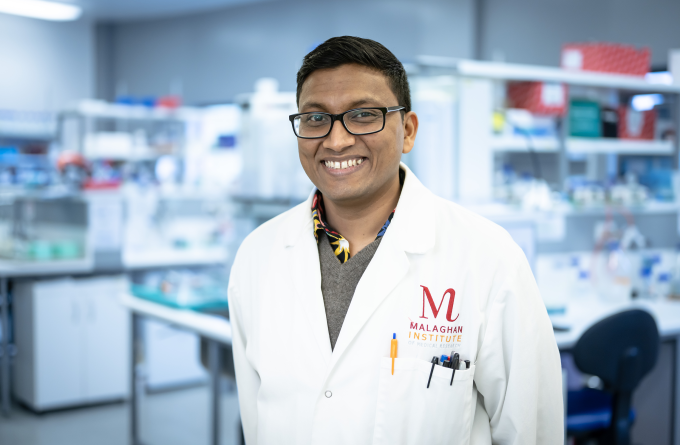
Cancer Research Trust grant to improve CAR T-cell therapy
12 February 2025
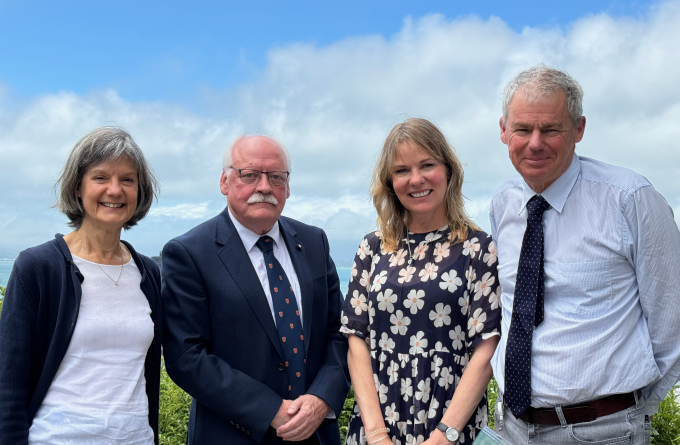
World-renowned cancer pathologist joins the Malaghan Institute as Distinguished Research Fellow
19 December 2024

New Zealand to New York and back again: Malaghan researcher tackling liver cancer
18 November 2024
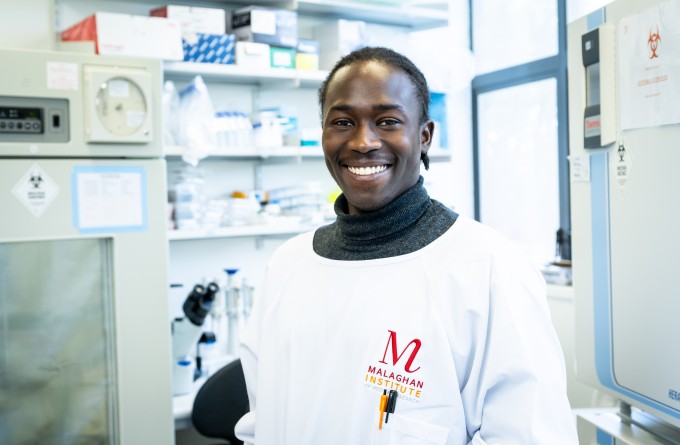
Community partnerships: Zephyr Consulting empowering emerging scientific talent
18 November 2024
